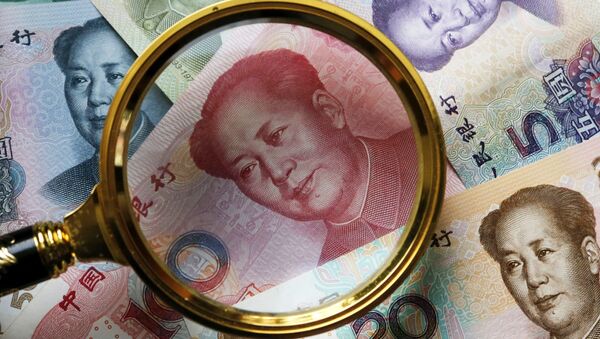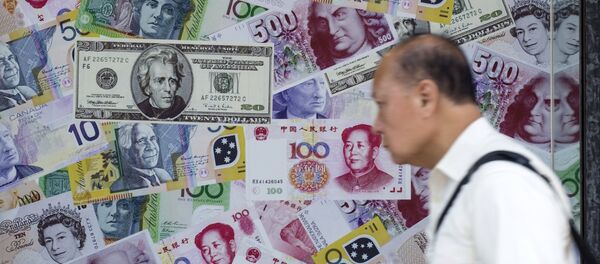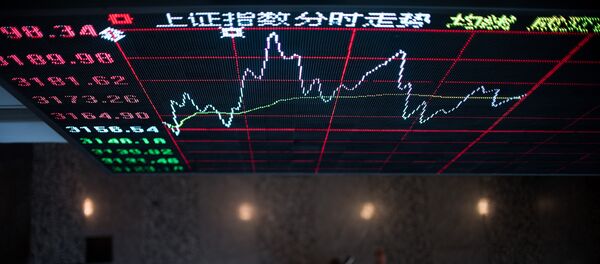As part of a crackdown on corruption, China has uncovered the largest "underground bank" in the country. Over 370 individuals involved in the scheme have been arrested, according to the People’s Daily, for handling 400 billion yuan ($64 billion) in illegal foreign-exchange transactions.
According to the state-run Xinhua News Agency, investigators spent more than a year monitoring over 1.3 million transactions and froze more than 3,000 suspicious accounts.
The Chinese government limits the amount of money citizens can convert into foreign currency each year to $50,000 worth of yuan. By taking advantage of a loophole, individuals were able to work around the government’s limitation by breaking large sums into small transactions which were sent overseas.
One suspect, identified as Zhao Mouyi, established over 10 phony companies in Hong Kong, and then used those companies to transfer over 100 billion yuan abroad.
"Zhao circumvented the capital controls by directly transferring yuan overseas and then exchanged the money into foreign currencies at banks including HSBC Holding Plc in Hong Kong," Bloomberg wrote. "Zhao then allegedly transferred it to his clients’ accounts."
The Hong Kong Monetary Authority declined to comment on the case, but told Bloomberg that city banks have "stepped up their internal control to report suspicious transactions."
"The government wants to stem outflows and stabilize the yuan’s exchange rate, but the outflows cannot be stopped unless people change their expectation on yuan depreciation," Xi Junyang, a finance professor at Shanghai University of Finance and Economics, told Bloomberg.
Other methods of getting around the government’s $50,000 limit are less sophisticated, but no less problematic for authorities. Some have used credit cards to purchase merchandise abroad, and then returned that merchandise for cash.
As Chinese authorities move forward with the investigation, Hou Wei, a banking analyst with Sanford C. Bernstein & Co. in Hong Kong tells Bloomberg that the government is "determined and very serious" about preserving its exchange rate.






